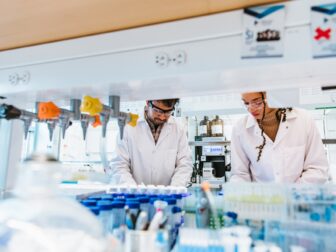Wei “Adelyn” Tsai

Boosting Resilience to Alzheimer's Disease Through the ‘Powerhouse’ of the Cell
Summary
In Alzheimer’s disease (AD), an abnormal build-up of protein plaques kills brain cells, leading to memory loss and other symptoms. Two main risk factors of AD are aging and inheriting a specific version of the apolipoprotein E gene, called APOE-ε4. However, some people with these risk factors do not develop dementia or protein plaques. These individuals are considered “resilient,” but the reasons for their resilience are not well understood. Our previous work found that increased expression of a gene, NDUFV1, is linked to resilience in APOE-ε4 carriers aged 80 years or older. NDUFV1 regulates the function of the mitochondria, the powerhouse of the cell. In this project, we first aim to develop gene therapy that can boost expression of NDUFV1. We plan to test the efficacy of this therapy using neurons grown from stem cells of AD patients or normal donors. We will also explore new mitochondrial mechanisms and genes in different brain cell types that may protect against AD in elder people (≥80 years-old). This study will contribute to the development of new therapy and discovery of new drug targets by leveraging mitochondria to increase resilience to AD.
I am very honored to receive this fellowship. This award will help move forward my thesis and enhance our understanding of how mitochondria affect resilience to Alzheimer’s disease. It is also a recognition of my ability to formulate scientific questions and conduct scientific research.
